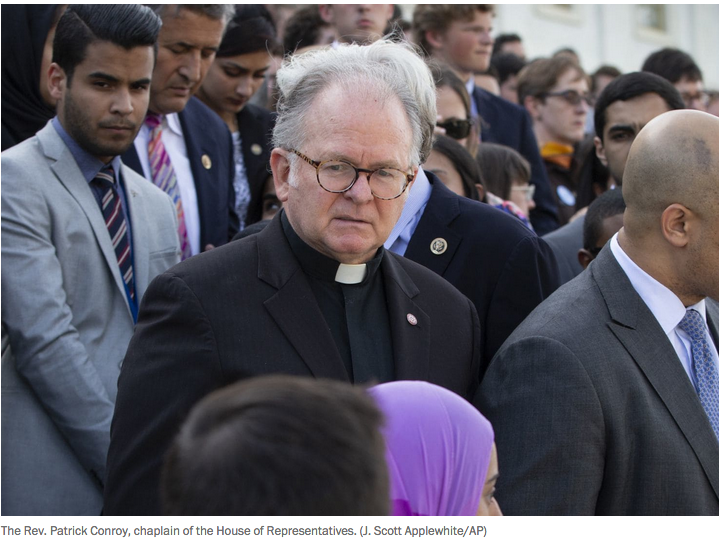Praying for the poor is now apparently a firing offense in the corridors of power.
House Speaker Paul D. Ryan (R-Wis.) did not give a reason when his chief of staff this month told the Rev. Patrick Conroy, a Jesuit priest and House chaplain, to resign or face dismissal.
But we know this much: Ryan’s office complained to Conroy about a prayer he offered on the House floor during the tax overhaul debate that those who “continue to struggle” in the United States would not be made “losers under new tax laws.” Ryan admonished the priest after the Nov. 6 prayer, saying, “Padre, you just got to stay out of politics,” Conroy told the New York Times.
He was warned. He was given an explanation. Nevertheless, he persisted.
Over the five months since Ryan’s warning, Conroy dared to continue to preach the teachings of Jesus on the House floor:
He prayed to God that lawmakers would help “the least among us.”
He prayed for them to follow the example of St. Nicholas, “who fed the hungry, brought hope to the imprisoned, gave comfort to the lost.”
. . .
On Friday morning, in the well for one of his last remaining prayers, Conroy prayed “for all people who have special needs” and “those who are sick” and for those “who serve in this House to be their best selves.”
Best selves? Respect? Reconciliation? No can do. Later Friday, Rep. Joseph Crowley (N.Y.), a Democratic leader, rose to request an investigation into Ryan’s dismissal of Conroy. Republicans moved to quash the proposal — and, to nobody’s surprise, they prevailed.
If you preach about the poor in today’s Washington, you don’t have a prayer.




